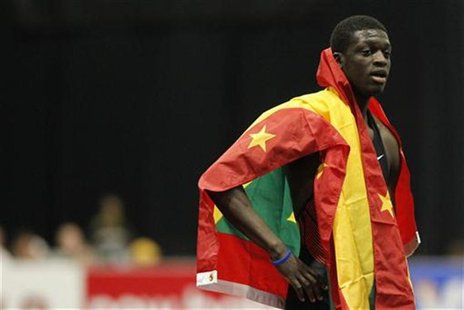TRAVIS WEAGANT
<Editor-in-Chief>
Once upon a time, in France, my roommates and I got drunk and watched the Olympics. The end. Or, at least, that could have been the end. That should have been the end. But it wasn’t.
It’s common sense that just because the United States wins the most medals at the Olympic Games doesn’t mean they’re the most gifted athletic nation on Earth. It’s also clear that Afghanistan’s lone medal of the London games (a bronze) is not a good indicator of how much athletic talent has been suppressed or destroyed by that country’s years of violent conflict. So, we wondered, just who is the best? And thus occurred a nerd explosion rivaled only by that guy in the front row who put his hand up on the first day of Ethical Lawyering. So, when it comes to who really won the Olympics, needless to say, we found a winner.
Totally Scientific Methodology
We began by assigning 3 “medal points” to a gold medal, 2 points to a silver medal, and 1 to a bronze. This gave each country a “medal score” reflecting the difficulty of winning the types of medals it won.
Next, the methodology accounts for population differences. Each country’s medal score is divided by its population, giving the number of medal points per capita. This figure theoretically reflects each country’s relative athleticism, with generally smaller countries appearing in the top ten. However, what we really wanted to know is which countries were outperforming expectations. This is where it gets tricky.
We added up the populations of all medal-winning countries to get a “medal world population”; and obtained a universal medal points per capita figure. This is the world average, meaning that any country whose per capita figure is higher is outperforming, and any country’s that is lower is underperforming. We divided each country’s score by the world average to obtain a final performance figure.
Of course, relative population does not, by itself, tell the whole story. The other major factor influencing Olympic success, apart from latent athletic talent, is availability of resources for training. So, we decided to use nominal GDP figures from the International Monetary Fund and World Bank to account for relative prosperity.
Similar to what we did with the population figures, we obtained a medal points per dollar of GDP figure for each country. Theoretically, countries that score better need fewer resources to win. Once again, we calculated the world average and a subsequent performance score.
Finally, we averaged the two performance scores. In theory, a country with average athletic talent for its population size utilizing its resources with average effectiveness would receive an overall score of 1.
If you follow to this point, congratulations! Give your iron ring a kiss. Even if you don’t follow to this point, the next part is the most exciting.
Results
Usain Bolt strikes again. In second place, Jamaica, outperforming expectations by a factor of 40. In a distant third are the Bahamas with a score of 18. The next countries are a mixed bag, with Georgia, Mongolia, Montenegro, Cuba, New Zealand, Trinidad, and Hungary rounding out the top ten, all with scores above 10.
As a disclaimer, Cuba’s score is somewhat unreliable because a firm GDP figure is not readily available online, so we had to make do with estimates. I chose not to disqualify them, as that would have removed them from the top ten and bumped up number eleven: North Korea. Their figures are equally unreliable. I understand that every time the IMF and World Bank make enquiries for the figures, they receive letters in response containing only comical taunts and profanities, and that employees of both organizations are “just tired of being disrespected, man.”
I suppose I could disqualify them both, in which case congratulations are in order for Belarus.
 As proof that using two variables instead of one was statistically valuable, it is worth noting that after adjusting the overall scores for GDP, Slovenia, Lithuania and Denmark all dropped from the top ten, and Cuba jumped 8 positions.
As proof that using two variables instead of one was statistically valuable, it is worth noting that after adjusting the overall scores for GDP, Slovenia, Lithuania and Denmark all dropped from the top ten, and Cuba jumped 8 positions.
As far as the home team goes, Canada – with just a single gold medal – still outperformed overall with a score of 1.26, falling just behind the USA at 1.27. I’d say that’s within the margin of error, wouldn’t you?
Since I mentioned it earlier, Afghanistan, oddly enough, winds up with a score of 0.97, a score largely helped by its GDP performance rating. However, with a score of 0.09, in third-from-last place, trailed only by Saudi Arabia and Indonesia, the country whose rating most demands social science research is India.
But the most surprising placement of them all is the overall winner. On August 6, Kirani James won Grenada’s only medal in history – a gold – and outperformed his country’s expectations by a factor of 130. Take that, Usain Bolt.
*Read: extremely unscientific.
